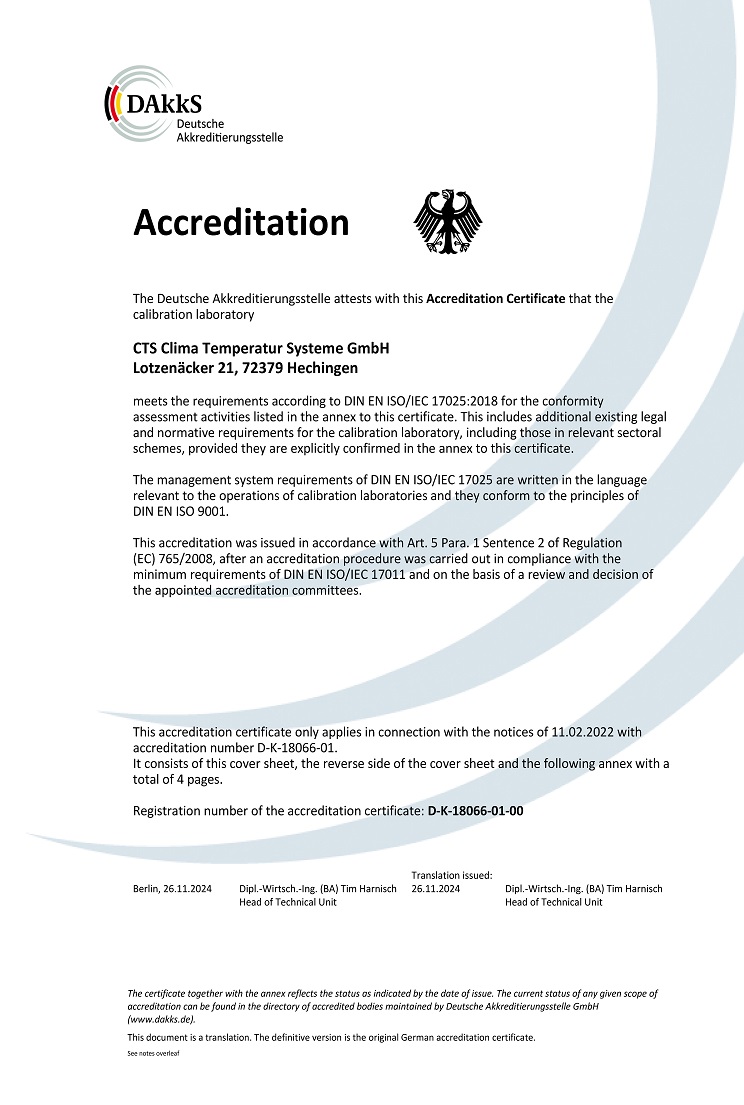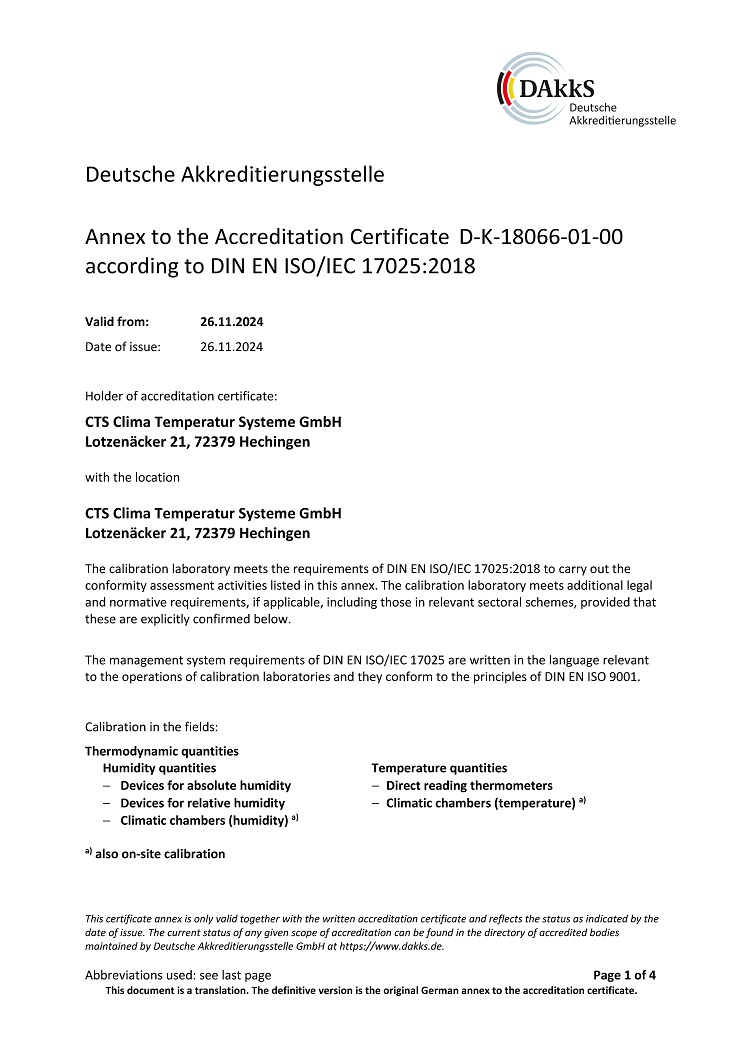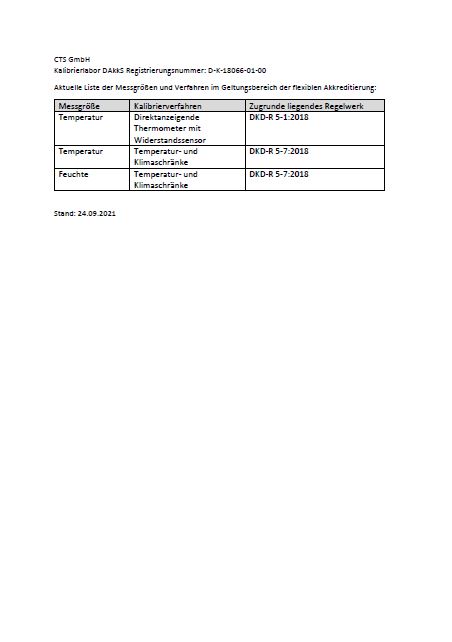Calibration
Relevant Information of the DAkkS
The calibration laboratory is accredited by the Deutsche Akkreditierungsstelle GmbH (DAkkS)

in accordance with DIN EN ISO / IEC 17025 and has the competence to calibrations for measurand temperature, dew point temperature, relative humidity temperature and climatic test cabinets, including on-site calibrations
New national metrological traceability policy:
CTS GmbH recommends DAkkS calibration certificates
In line with the demands of the European Cooperation for Accreditation (EA), the German Accreditation Body (DAkkS) has adapted its regulations regarding metrological traceability. Laboratories use traceability to ensure the correctness of the measured results for the user. Now, there are strong restrictions on the use of works calibration certificates and certificates of measurement as proof of traceability.
Up to now, works calibration certificates created by accredited calibration laboratories within the scope of their accreditation were indeed accepted as an evidence for traceability. All that was required was to check, for example, whether the procedure and the measuring ranges on the calibration certificate really corresponded to the scope of accreditation. DAkkS obliged the calibration laboratories to apply the same standards when issuing works calibration certificates as when issuing DAkkS calibration certificates. Under these preconditions, works calibration certificate could be accepted.
Because of the EA’s demands, works calibration certificates, even from accredited laboratories, are no longer accepted, because these works calibration certificates are not subject to DAkkS monitoring.
The new regulations come into force in August; DAkkS recommends that all accredited bodies check their current means of proving traceability and adapt them, if necessary.
Our explicit recommendation is:
• If you need a calibration certificate as evidence of traceability, safe yourself any unnecessary trouble by choosing one based on a DAKKS calibration certificate. It will definitely be accepted internationally and is the safest choice thanks to multilateral agreements on the mutual acceptance of accreditation systems which the European umbrella organisation European Cooperation for Accreditation (EA) agreed upon together with the International Laboratory Accreditation Cooperation (ILAC).
DAkkS calibration certificates are audit-proof and give you support in product liability cases in court.
• If technical information on the calibrated item is your priority and you are sure that you do not need evidence of traceability, then our cheaper works calibration certificates are an alternative for you. We guarantee that our works calibrations are carried out with the same competence as our DAkkS calibrations. We have no second-class calibrations.
Further Information
Download PDF DAkkS-Report "DAkkS adapts regulation for metrological traceability" (german only)
Outside the accreditation we also offer factory calibrations (WKD).
Akkreditierung
Accreditation Documents
The DAkkS (Deutsche Akkreditierungsstelle GmbH) hereby accredits the calibration laboratory of CTS GmbH in accordance with DIN EN ISO/IEC 17025:2018 for calibration of measurands: temperature measurements, humidity measurements (Registration No.: D-K-18066-01-00) Accreditation certificate in accordance with DIN EN lSO/lEC 17025:2018
Appendix to the DAkkS Accreditation
We offer DAkkS calibrations. These are only valid in the current scopes listed appendix below the accreditation certificate (D-K-18066-01-00).
Download the current scope of services of the DAkkS laboratory here.
Flexible Accreditation
Our calibration laboratory has a flexible category III accreditation. You can see the list of valid standards in the flexible area here . (german)
Frequently asked questions
Please refer to www.dakks.de for more detailed information.
Accreditation of DKD laboratories is based on the rules and procedures of the German Calibration Service (DKD) as defined in DIN EN ISO/IEC 17025. Due to amendments in the standard (version 08/2005), all laboratories will undergo assessment for compliance to the amended version of the standard by 15th May 2007 within the framework of monitoring visits.
Reference:
- DIN Internationales Wörterbuch der Metrologie
- DAkkS-DKD-5






